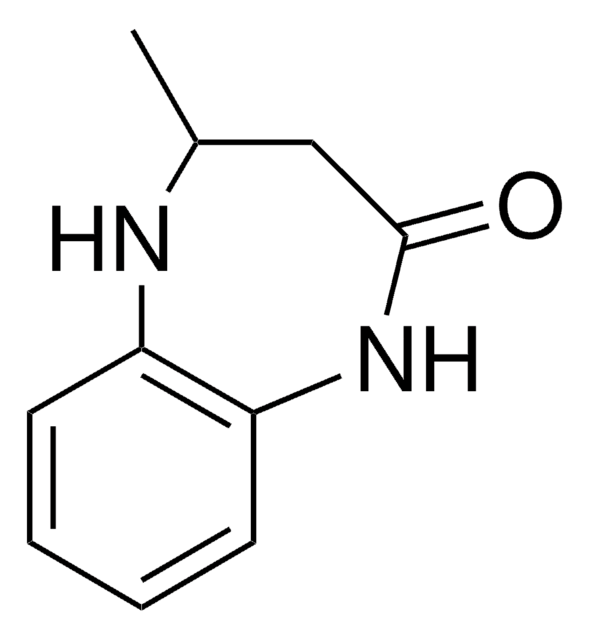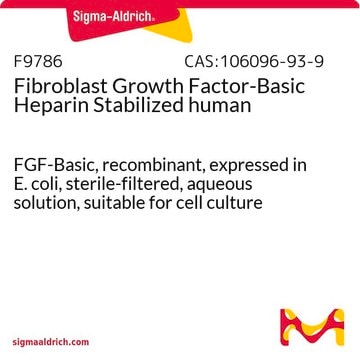F1168
Fibroblast Growth Factor-9 human
recombinant, expressed in baculovirus infected Sf21 cells, lyophilized powder, suitable for cell culture, ≥97% (SDS-PAGE)
Synonym(s):
hGFG-9, FGF-9, GAF, Glial Activating Factor
About This Item
Recommended Products
biological source
human
Quality Level
recombinant
expressed in baculovirus infected Sf21 cells
assay
≥97% (SDS-PAGE)
form
lyophilized powder
potency
2.6 ng/mL
mol wt
~25 kDa
packaging
pkg of 25 μg
storage condition
avoid repeated freeze/thaw cycles
technique(s)
cell culture | mammalian: suitable
impurities
endotoxin, tested
UniProt accession no.
storage temp.
−20°C
Gene Information
human ... FGF9(2254)
General description
Application
Biochem/physiol Actions
Physical form
Analysis Note
Storage Class
11 - Combustible Solids
wgk_germany
WGK 3
flash_point_f
Not applicable
flash_point_c
Not applicable
ppe
Eyeshields, Gloves, type N95 (US)
Certificates of Analysis (COA)
Search for Certificates of Analysis (COA) by entering the products Lot/Batch Number. Lot and Batch Numbers can be found on a product’s label following the words ‘Lot’ or ‘Batch’.
Already Own This Product?
Find documentation for the products that you have recently purchased in the Document Library.
Our team of scientists has experience in all areas of research including Life Science, Material Science, Chemical Synthesis, Chromatography, Analytical and many others.
Contact Technical Service






